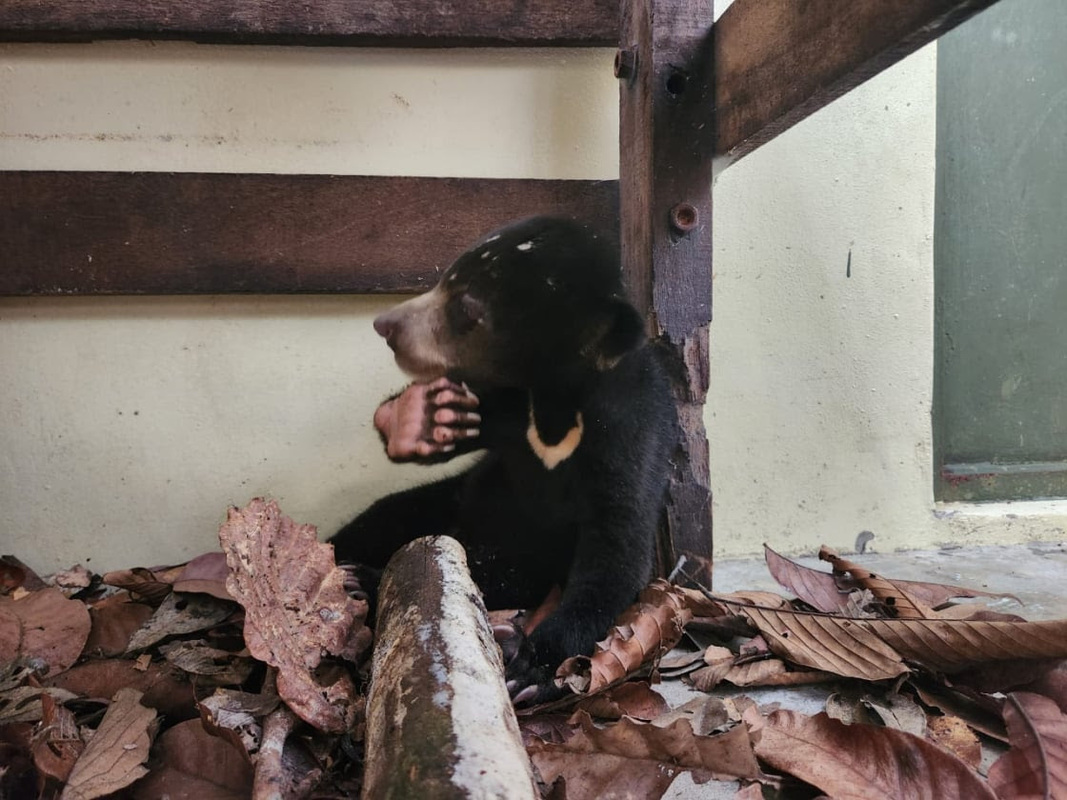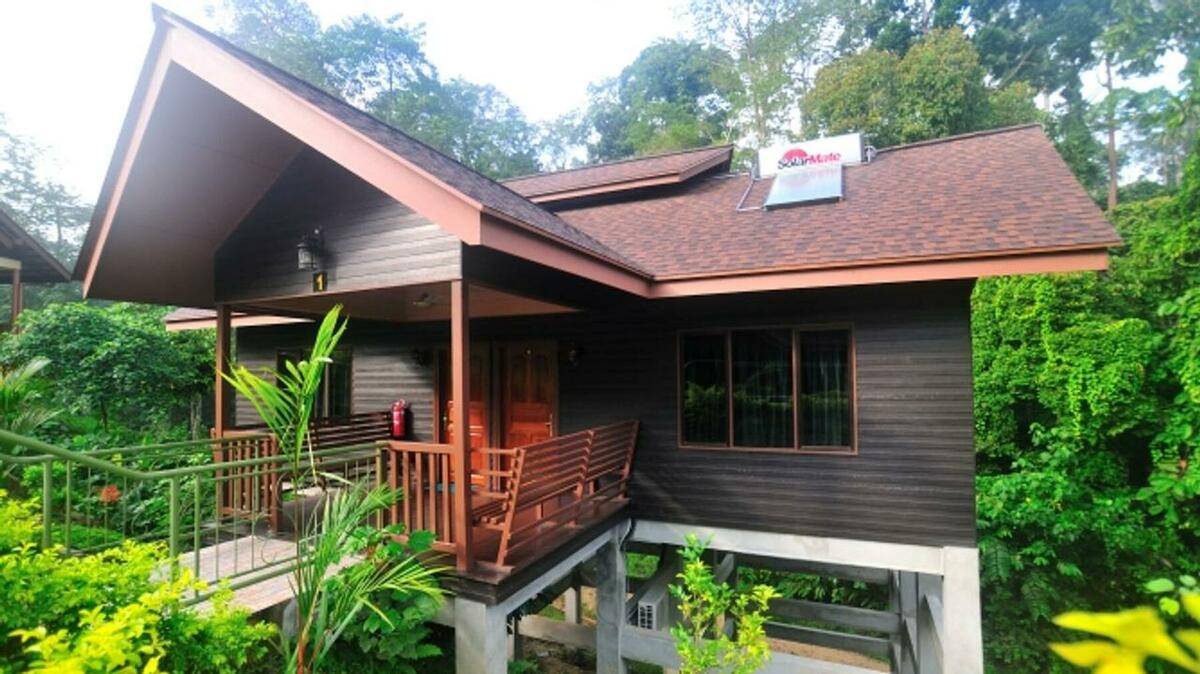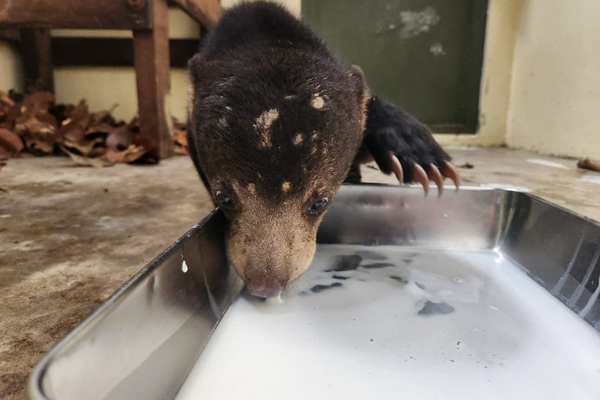
Sun bears are the smallest and least-studied bear species. They live in tropical lowland forests and are the only bear in South-East Asia.
Bornean sun bears are found exclusively in Borneo.
Populations have declined by 30% in 30 years. The main threats are habitat loss, hunting and the pet trade.
Tenom's rescue
Tenom first arrived at the Borneo Sun Bear Conservation Centre in early June - she was 3 months old and weighed 4kg.
It is uncertain what happened to her mother but she was probably killed. Tenom was being sold for RM500 (about £80) in a village on the Beaufort-Sipitang border. She was surrendered to the Sabah Wildlife Department before eventually making the long journey to the sun bear centre.
Tenom is doing well considering her ordeal, and is described as "active and feisty". She has been exploring her surroundings, is very vocal, and sleeping in a nest of dried leaves.
The team at the centre will continue to give Tenom the best bear experience they can, and hope that one day she can be returned to the forest. Although it will take time for Tenom to learn enough skills to survive on her own, at least she is not going to be a pet, stuck in a cage in someone's house.
Working towards a better future for sunbears
BSBCC has five pillars: Animal Welfare, Rehabilitation, Education, Research and Ecotourism.
Raising awareness in the local communities, through an extensive education programme in schools and on plantations, is key to the future of sunbears. Teams visit to speak to children and workers about threatened species and forest degradation and to remind them of the laws and penalities. They give them advice on what to do if they see a bear and try to tackle the feelings of fear that some people have by having open and honest conversations.
Here is an extract from the centre's sun bear information booklet:
The sun bear is a forest dependent species. Unfortunately, most of the rainforest has already been degraded by logging and clearing to create agricultural plantations, such as oil palm and rubber.
Sun bears have been hunted for generations in the jungles of Borneo for their meat and other body parts. Their meat was traditionally eaten as a food source by the indigenous people. Their body parts were used as medicine (bile from gall bladder) or for decorative purposes (claws, canines, and skin). Now, it is illegal to hunt sun bears in Sabah.
They are a 'Totally Protected' species under the Sabah Wildlife Conservation Enactment of 1997. Those found in possession of a sun bear or its products could face a fine of up to RM50,000 or a jail term of 5 years (or both).
Despite this law, sun bears are continuously poached, mainly to meet the demand for exotic meat and Asian traditional medicine.
Being the smallest bear in the world, sun bear cubs are very cute. The problem is that people think that cute bears make good pets.
But...what happens when you keep a sun bear as a pet?
All of a sudden that cute little baby bear grows up! Then you have a dangerous bear that cannot be controlled. This is why most captive bears end up in chains or small cages.
A mother sun bear has to be killed before her cub can be taken as a pet for someone’s home. In the wild, sun bears spend their first 2-3 years learning survival skills from their mothers. When people take them as pets, the cubs spend those years in small cages and never learn what they need to survive from their mothers. Most pet sun bears have suffered from mistreatment by their owners too.
The sun bears at BSBCC are ex-pets and are there to regain their forest skills so that they can go back to the wild where they belong.
Sun bears are important forest animals that belong in the wild! They should never be kept as pets.
Support for BSBCC
In 2021 we donated £5,000 for satellite collars to monitor bears ready for release to the wild.


Ecotourism
We try and support the work of Dr Wong and the Sun Bear team by raising awareness and donating funds towards specific needs, like sat tags but there is another way that we can offer ongoing support - by promoting responsible wildlife travel to destinations such as Borneo.
Ecotourism is a very important source of revenue to Malaysia. Borneo - famous for its biodiversity - attracts thousands of visitors from all around the world. But if the forest is lost, and biodiversity declines, the visitors will not come so there is pressure on authorities to conserve what they have.
You can visit the Sun Bear Centre, which is very close to the Sepilok Orangutan Centre. While you are at the centre you can see and learn all about sun bears.
To find out more about trips to Borneo please visit our partner site

